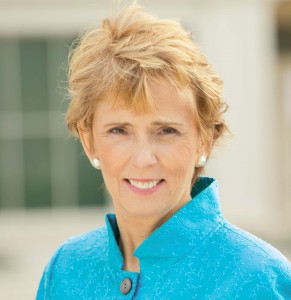POST: Are Physicians Coachable? (YES!)

Copyright: lightwise / 123RF Stock Photo
What is it about physicians? The stereotype of the brilliant and bold surgeon who reigns over the operating room whose mantra is “A chance to cut is a chance to cure.” The ever-smiling pediatrician wearing a bowtie with small elephant on his stethoscope. And the pipe-smoking psychiatrist, steeped in Freud and saying little. None of whom listens to anyone without an MD, and often not to them. Many physicians have life and death in their hands – literally. As physicians our training is to “fix it.” Jerome Groopman shares with us that doctors usually get it right. Sometimes they don’t. “Most errors are mistakes in thinking. And part of what causes these cognitive errors is our inner feelings, feelings we do not readily admit to and often don’t realize.”
My work in coaching physicians lives at the interface of what they know – getting it right – and what they often don’t realize – that being an effective executive leader requires additional skills and moving from linear to complex thinking. Once they realize the value of coaching in getting them there, they are ideal clients. Meet them where they live, in science. Show them the evidence, the research and they’re ready to go.
Years ago I coached an energetic, fearless surgeon who was failing badly in a new role. He was a skilled technician, performing procedures on desperate patients, often saving their lives after other surgeons had given up. He had been a rising star in an academic medical center where surgeons ruled and often were less than tactful with their colleagues, surgeons and non-surgeons alike.
I met this doctor after the CEO of a more cordial medical facility recruited him to be a department chair. Intra- and interprofessional relationships mattered at the new organization. Employees stayed forever, dedicated to the mission of putting patients first.
He was tasked to turn a failing department around, to update technologies and offer new services—big and important challenges. My coaching client had started his tenure by immediately making changes, without reading The First 90 Days (one of the first books I asked him to read), or learning the new culture and its people. His approach came from the stereotypical academic medical center, which means it was long on telling and short on listening.
He had been hired to “turn the department around” and he was doing just that in the style of the organization he had been recruited from. That old methodology of succeeding wasn’t working in the new system. He was bewildered by the switch in attitude toward him, by his colleagues complaining about him and his style. When I met him, I was the latest in a series of coaches, some of whom believed he was misguided and others who believed he was uncoachable, a lost cause.
During our coaching engagement he grilled me at every step – what was the data? Where was it published? Without the proof of peer-reviewed articles he seemed unenthusiastic and minimally engaged. A turning point came when I mentioned that Coursera offered a free online course in emotional intelligence, taught by Dr. Richard Boyatzis, an excellent and brilliant teacher with a world-class academic pedigree. Four weeks into the course my client said to me, “I didn’t realize there was so much science, such a body of literature, in motivation and leadership.”
And so our coaching continued, as did his questioning – with a difference. Now he had become deeply interested in the process. He met with each of his direct reports, apologized for his behavior and asked all for their suggestions on the future of the department. He began asking “what” questions and then listening for a maximum of three minutes before commenting. He learned to solicit opinions without appearing to attack the offerer. Eventually, and with the help of carefully chosen Harvard Business Review and medical journal articles, he learned to modulate his style to fit the organization, and the importance of relationships.
I tell this story to illustrate the importance of evidence and of research to those who are schooled in hard science. Behavioral science is different from, say, chemistry, at least at the beginning levels. Variables in “soft sciences” are often measured in a more qualitative, or descriptive manner – measuring behavior, which is open to interpretation. In the “hard sciences” in which physicians train, variables are more amenable to a quantitative, or yes/no manner – measuring things. A quantitative conclusion is more concrete and often not open to interpretation. For example, “The elements combined to make a compound weighing 20 grams” compared with “When subject was confronted with x he did y and the explanation is z.” There are 20g whether you measure in ounces or kilograms; there are 20g whether you use a digital scale or a balance. On the other hand, the explanation of behavior has a lot to do with whom explains it – what their training and assumptions are. The explanation is subject to variability depending upon the observer, just like coaching – and that is what causes the physician to hesitate, to overthink. Just as they don’t want to risk someone’s life on untested treatments, they are trained to be deeply skeptical of interpretations that are not thoroughly understood.
To get physicians, and other clients, to invest in coaching, I often have to explain the theory and research behind the practice. It is not enough to point to the results and say “It works!” I have to show why—they want to see the data and the interpretation. Doctors want to know the difference coaching can make in their success as leaders.
We know from research that client buy-in, and readiness to change is essential for coaching to be successful. As individual coaches, how can we support physicians and other “hard-science-oriented” clients? As an executive coach for physicians, I typically start with 360 interviews to learn others’ perceptions. Throughout our coaching engagement I share articles and books – the evidence. Since emotional intelligence is often a critical part of my clients’ leadership development, if possible I use the ability-based MSCEIT (Mayer-Salovey-Caruso Emotional Intelligence Test), a valid and reliable instrument that measures the taker’s emotional intelligence in four dimensions (perceiving, understanding and managing emotions, and facilitating thought) and offers suggestions to improve the taker’s emotional intelligence. Validity and reliability are foundations of the scientific method. The former refers to whether the test measures what it says it measures. The latter refers to the reproducibility of the test by other researchers. Physicians often are more trusting of instruments with these qualities.
In the big picture, there’s a lot to do. The field of coaching in healthcare leadership training is still in its infancy. It is so new that there are not even terms for it in the major research search engines like PubMed, which is one of the “go-to” resources for physicians looking for reliable answers. Enter “coaching” and nothing comes up. The closest MeSH® term it maps onto is “leadership.”
As with most areas in medicine “More research is needed” in physician coaching. For now, show them the evidence we have.
First published on The Library of Professional Coaching
[mashshare]CATEGORIES:Recent Blog Articles

In Medicine, The “Soft” Skills Are Essential
Michael’s Story: The Beginning “I’m straightforward, to the point,” said Michael, the CEO at a large inner-city hospital. “The people I work with—they may not like me, but they know I’m right.” “What else?” I said to Michael, whom I had just been retained to coach. “I just wish they understood me. I do what’s […]
CATEGORIES: Coaching Emotional Intelligence Physician Leadership

Dr. Margaret Cary spoke at the American Society of Hematologists
December 3, 2018 Dr. Cary delivered an interactive presentation on Women’s Leadership at the Women in Hematology reception at the ASH’s annual meeting of nearly 28,000 attendees in San Diego.
CATEGORY: Coaching

What We Can Learn About Leadership from The Boss
A Bruce (The Boss) Springsteen fan reflects on what her coaching clients can learn about leadership from him.
CATEGORY: The Doctor Weighs In

Develop a Coaching Culture
What might you do to develop a coaching culture in your office, in your organization? “I know I blow up and get angry. I am protective about my patients and the physicians in my department and I can’t help myself.” Dr. Leonard was one of my coaching clients, a surgeon who had left a trail […]
CATEGORIES: Coaching Physician Leadership

The Value of Coaching in Medicine
With Jack Penner Jack and I recently joined Dave Etler, Administrative Services Coordinator for Student Affairs and Curriculum with Carver College of Medicine at the University of Iowa, and Carver medical students Amy Young, Aline Sandouk, and Mark Moubarek at The Short Coat Podcast for “weird news, fresh views, helpful blues, and interviews by students, for students” […]
CATEGORY: Medical Education

The Value of Presence in Medicine
When an American doctor is asked to examine her friend’s mother in a Chinese hospital, she realized it was her presence and caring that really mattered. Zhuo came with a self-assured attitude, lots of stories, and several films under her belt. I had volunteered to host a film director during the Denver International Film Festival. […]
CATEGORIES: Emotional Intelligence Quality of Care
